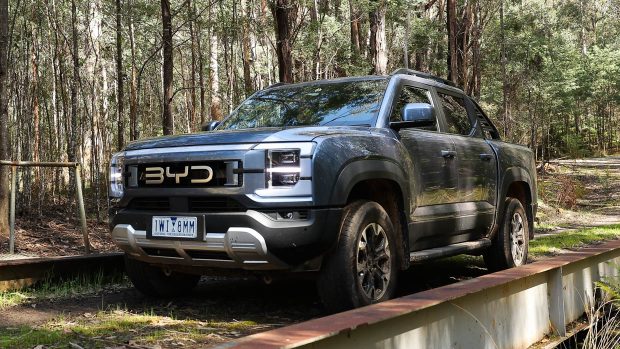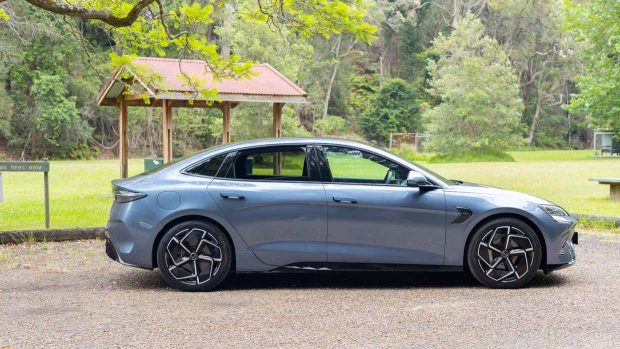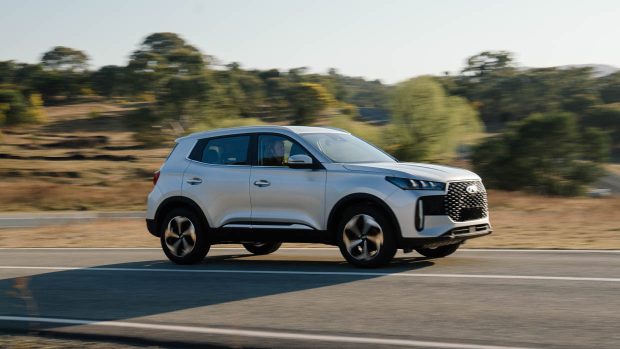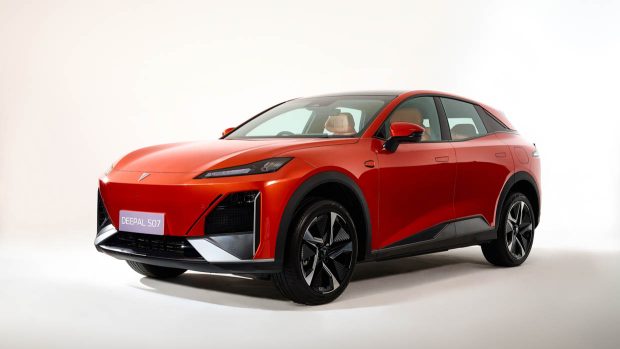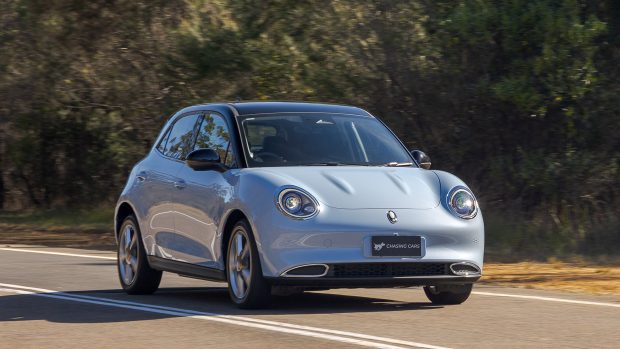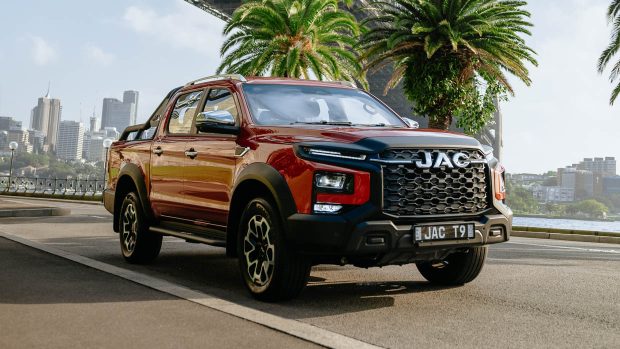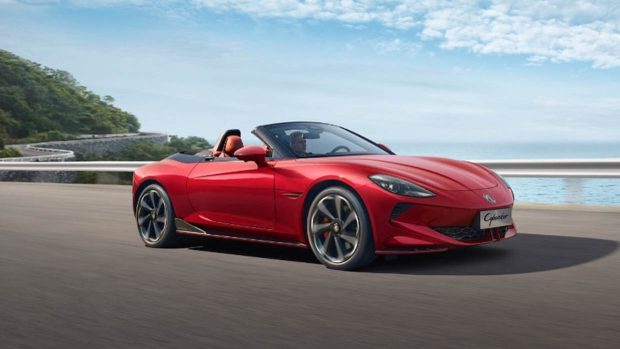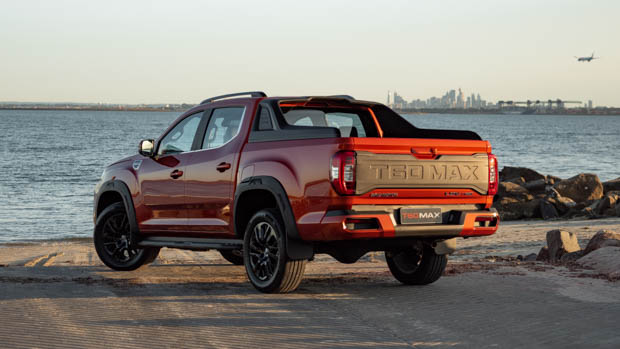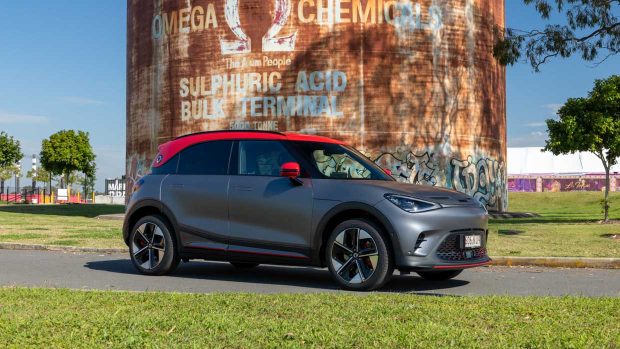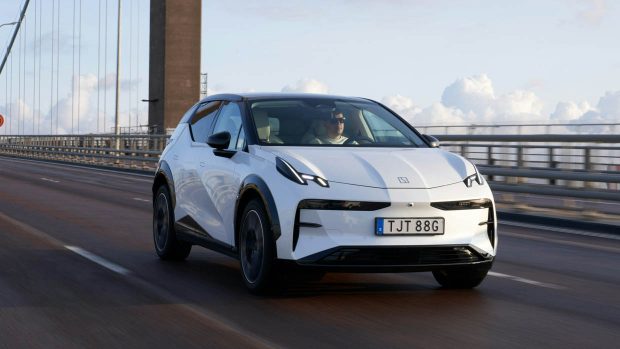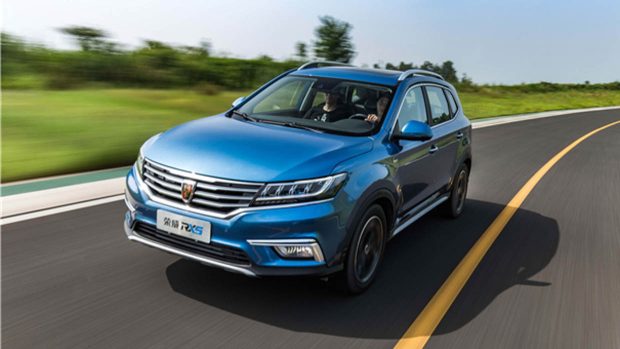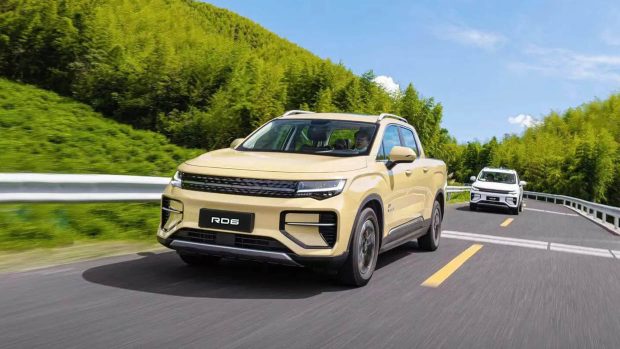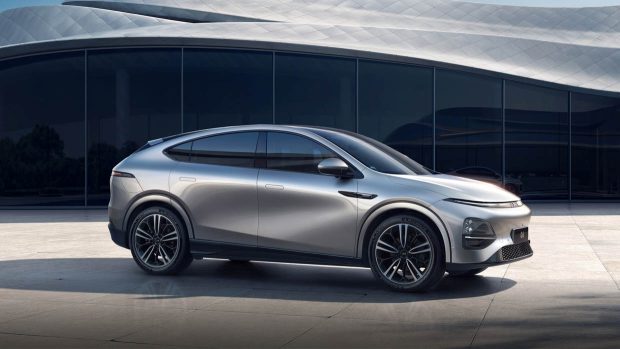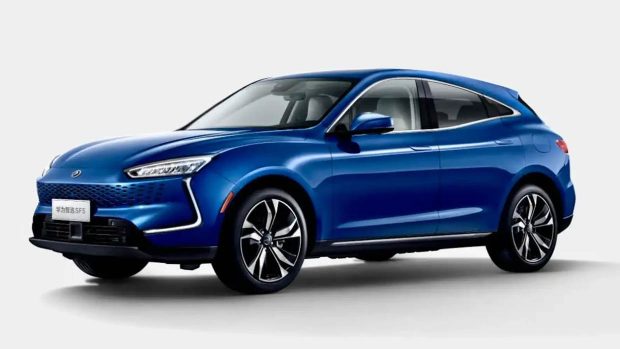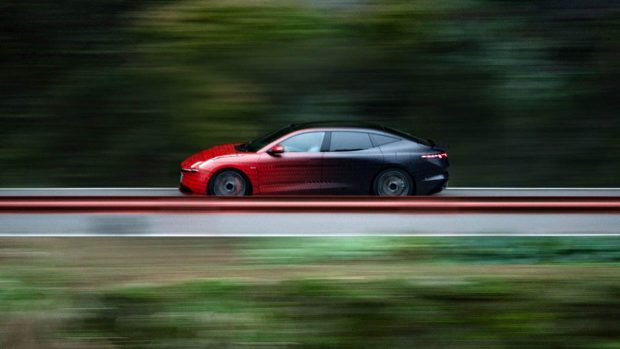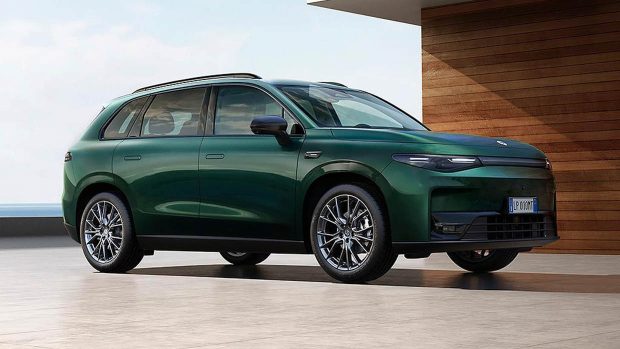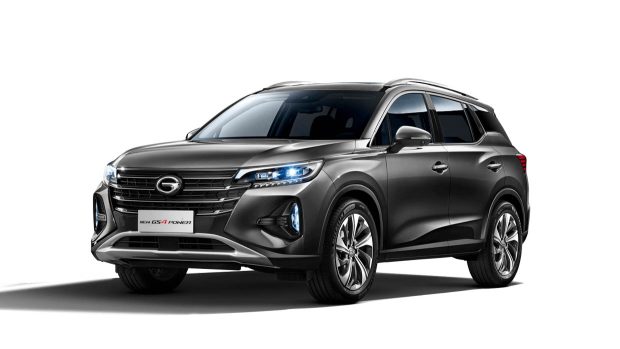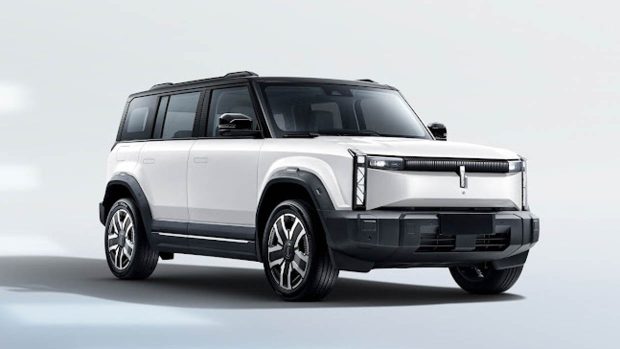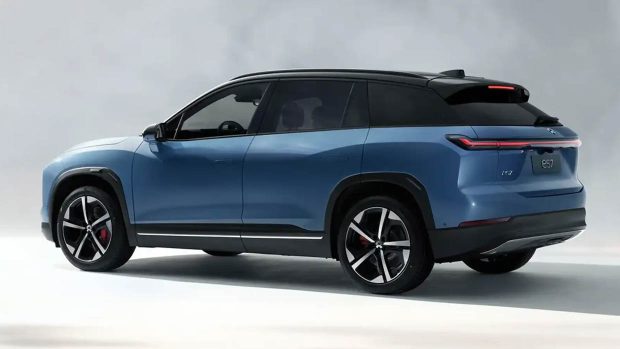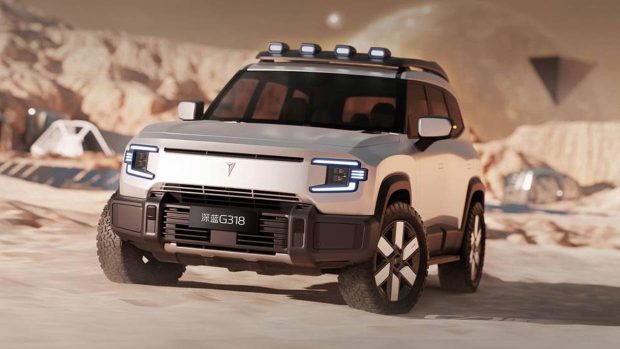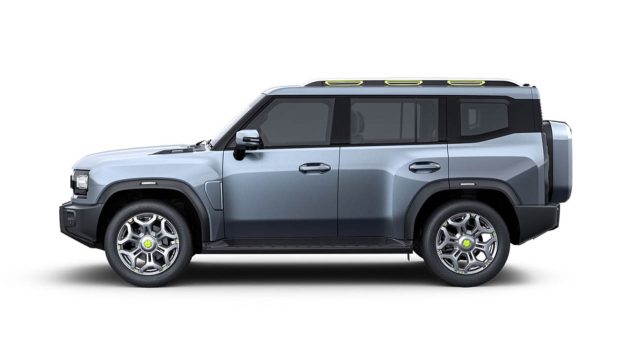-
Car Reviews
- All reviews
- Midsize SUVs
- Small cars
- Utes
- Small SUVs
- Large SUVs
- Large cars
- Sports SUVs
- Sports cars
- Vans
Latest reviews
- Car News
-
Car Comparisons
Latest comparisons
- Chasing Deals
Chinese carmakers are coming in fast to our local market, but what are some fast facts about each one?
Possibly the biggest change we’ve ever seen within the new car market globally has been the significant push by China to build more affordable BEVs, or battery-electric vehicles.
While there might be a fair share of sceptics out there, China’s presence in the new car market cannot go unnoticed. Similar to the rise of South Korean automakers Hyundai and Kia two decades ago, Chinese brands still sit on the fringes for now but are expected to become mainstays in our local automotive environment in the longer term.
To clear up some of the confusion, this is Chasing Cars’ guide to the Chinese automotive space, what’s here and what’s still to come in the next 12 months.
Founded: 2003
Number of cars built in 2023: 3,045,231
First model in Australia: Atto 3 electric small SUV
Current model lineup: Seal sedan, Dolphin small car, Shark 6 ute, Sealion 6 SUV
Lowest starting price in Australia: $36,890 (Dolphin)
BYD arrived in Australia with the Atto 3 electric small SUV, a bold statement and at a pretty bold price. BYD in 2024 continues to push the boundaries and will very soon deliver its first-ever ute in Australia, the Shark 6, the first-ever PHEV ute for our market.
Founded: 1997
Number of cars built in 2023: 1,881,316
First model in Australia: Omoda 5 SUV
Current model lineup: Omoda 5 SUV, Omoda E5 electric SUV, Tiggo 4 Pro SUV, Tiggo 7 Pro SUV, Tiggo 8 Pro Max
Lowest starting price: $23,990 (Tiggo 4 Pro)
Chery is yet another Chinese automaker with value very much in front of mind. Beginning with the Omoda 5 SUV, the Chery brand will expand its automotive network to offer several other brands in Australia, including Jaecoo and Jetour. It’s planning to go more upmarket with these additional sub-brands on local shores.
Founded: 2008
Number of cars built in 2023: 102,417
First model in Australia: Deepal S07 midsize SUV
Current model lineup: S07, and later S05 and L07
Lowest starting price: $53,900 plus on-road costs (S07)
Deepal is going full steam ahead with a series of electrified SUVs for Australia, targeting prices lower than that offered by key rival Tesla. Its first model for our shores will be a S07, directly targeting the Tesla Model Y.
Founded: 1984
Number of cars built in 2023: 1,229,982
First model in Australia: GWM Cannon ute
Current model lineup: Ora electric car, Haval Jolion, Haval H6, Haval H6 GT, Tank 300 and 500 SUVs, Cannon ute and Cannon Alpha ute
Lowest starting price: $26,990 (Haval Jolion)
GWM first came to Australia in 2009 as a relatively unknown brand, but is now a top 10 seller here. Its first model was a ute called the SA220 and was just $19,990 driveaway. Next on GWM’s priority list is a plug-in hybrid variant of its Cannon Alpha ute to directly rival the BYD Shark 6.
Founded: 1964
Number of cars built in 2023: est. 400,000
First model in Australia: JAC T9 ute
Current model lineup: JAC T9 ute
Lowest starting price: $42,662
While it tried to sell trucks in Australia for around ten years, JAC is giving our market another shot, and working on bringing some of the most affordable utes to our market. Its T9 ute has been priced well below the likes of the Toyota Hilux and Ford Ranger.
Founded: 2006 (under Chinese ownership)
Number of cars built in 2023: 840,000
First model in Australia: MG 6 sedan
Current model lineup: MG HS, MG ZS, MG 3, MG 4, MG 5, Cyberster
Lowest starting price: $18,490 (MG 3 Core)
Once British, but now entirely owned by Chinese auto giant SAIC, MG has hit the ground running in Australia, having had great success with models such as the ZS small SUV and HS midsize SUV. It has now entered the electric space with the MG 4 and Cyberster models and could even lean into the luxury space with its sub-brand IM Motors.
Founded: 1955
Number of cars built in 2023: Combined company output of 5,020,865
First model in Australia: LDV V80 van
Current model lineup: D90 SUV, T60 ute, eT60 electric ute, Deliver 7 van, Deliver 9 van, Mifa 9 people mover, G10 van
Lowest starting price: $37,358 (LDV G10+ van)
While SAIC owns MG, it also owns the brand LDV, previously known as Leyland DAF Vans, which sells commercial vans and pickups here in Australia. The big seller for LDV here is the T60 ute, but it’s going to bring the potentially game-changing eTerron 9 electric ute replacement to Australia early in 2025. Stay tuned.
Founded: 2019 (joint venture)
Number of cars built in 2023: Unknown
First model in Australia: Smart #1
Current model lineup: Smart #1 and Smart #3
Lowest starting price: $54,900 (Smart #1 Pro+)
Once known for (very) small city cars, the Smart brand has been reinvigorated thanks to a joint venture with Mercedes-Benz. The #1, #3 and #5 electric SUVs will be distributed here by LSH Auto. Fun fact: they are now much larger cars than the original Smart ForTwo city car.
Founded: 2021
Number of cars built in 2023: Unknown
First model in Australia: Zeekr X Luxury SUV
Current model lineup: Zeekr X, 009 people mover to follow
Lowest starting price: $56,900 (Zeekr X rear-wheel drive SUV)
Zeekr, owned by Geely, shares much of its platforms and technologies with Volvo. Its launching in Australia with the X SUV, but plans to also bring in an electric people mover called the 009. The van will compete with other electric people movers like the LDV Mifa 9. The Zeekr 001 is also a possibility for Australian shores in the future.
Who owns it? SAIC Motor
Founded: 2006
Production output in 2023: Unknown
Likely vehicle for Australia: RX3 small SUV, RX5 midsize SUV
Estimated introduction: Early 2025, likely under the MG banner
Yet another brand from SAIC, Roewe is likely to enter the Australian market, but could be simply rebranded as MG vehicles. However, SAIC launching another brand under its banner is not completely off the cards.
Who owns it? Geely Holding Group
Founded: 2003
Production output in 2023: 2,790,000
Likely vehicle for Australia: Radar ute, EX5 midsize SUV
Estimated introduction: 2025
Geely is all but confirmed for a future local launch and is likely to bring in its EX5 midsize SUV, as well as the Radar ute, also known globally as the Riddara RD6. Who said there were too many utes in Australia already?
Who owns it? Guangzhou Xiaopeng Technology Co. LTD
Founded: 2014
Production output in 2023: 100,000
Key vehicle: Xpeng G6 midsize SUV
Expected Australian introduction: Early 2025
Xpeng is confirmed and on its way to Australia, having already locked in its G6 electric SUV for our local shores. Its Australian website is also showing two other models, the G9 large SUV and the X9 people mover, so stay tuned for more information!
Who owns it? Seres Group
Founded: 2016
Production output in 2023: 114,000
Key vehicle: Seres SF5 midsize SUV
Expected introduction to Australia: Confirmed to Chasing Cars at the 2023 IAA Motorshow in Munich, Germany. Exact timing unclear.
Still broadly unconfirmed for Australia, Seres is making a lot of moves overseas and did confirm to Chasing Cars that it plans on making a debut in Oceania, including Australia, in the very near future.
Who owns it? Geely Auto (50%) and Volvo Cars (30%)
Founded: 2016
Production output: 800,000 units since launch
Key vehicle: Lynk & Co Zero sedan
Expected Australian introduction: By 2025
Another Geely brand, Lynk & Co is very likely to launch in Australia due to its parent company’s interests here. Headquartered in Sweden, the luxury brand produces a range of vehicles, with the Zero sedan and 08 midsize SUV likely for our shores in the future.
Who owns it? Stellantis (20%)
Founded: 2015
Production output: 500,000
Key vehicle: Leapmotor C10 electric SUV
Expected Australian introduction: Late 2024/ early 2025
Owned 20 percent by Stellantis, Leapmotor is taking on the likes of Tesla with its C10 midsize SUV. It’s a new vehicle, having only begun production this year. And the fact that Leapmotor has an Australian website is a very good sign, indeed.
Who owns it? Guangzhou Automobile Group (GAC Group)
Founded: 2008
Production output: est. 200,000 per annum
Key vehicle: GS4 SUV
Expected Australian introduction: Unknown
Reports indicated that GAC Motor has plans for Australia and is likely to introduce midsize and large SUVs, people movers and even sports cars. The GS4 SUV is most likely for a local Aussie launch.
Who owns it? Chery Automobile Company
Founded: 2023
Production output: est. 50,000 p.a
Key vehicle: J6 off-road SUV or Jaecoo J7 SUV
Expected Australian introduction: Early 2025
An SUV-focused spin off brand of Chery, Jaecoo is not to be confused with Jayco, the Australian caravan builder. Jaecoo specialises in rugged off-roaders such as the J6 and J7 models. The company is just a year old, but it has big plans for Oceania.
Who owns it? Nio Inc, shares factories with JAC Group
Founded: 2014
Production output in 2023: 160,038
Key vehicle: Nio ES7 & ES8 SUVs, EC7 midsize SUV
Expected Australian introduction: Sometime in 2025
Established in 2014, Nio has become known for its battery-swapping technology and battery stations and actively participates in the electric-only Formula E. It produces cars in plants shared with the JAC Group. ES7 and ES8 SUVs are very likely for a future Australian release.
Who owns it? Changan Automobile Company
Founded: 1862
Production output in 2023: 2,553,052
Key vehicle: G318 ladder frame off-road SUV
Expected Australian introduction: Sometime in 2025
Changan owns 51 percent of Deepal, making a future Australian launch likely. It produced a staggering 2.5 million cars in 2023. The brand could sell a range of cars down under, including the G318 off-road SUV and even the F70 ute (rebadged as a Peugeot Landtrek).
Who owns it? Chery
Founded: 2018
Production output in 2023: 315,000
Key vehicle: Jetour Dashing, Traveller and X70 SUVs
Expected Australian introduction: sometime in 2025
Another Chery owned business, Jetour is a brand noted for its crossovers and SUVs. Founded in 2018, the Chinese brand will likely bring rugged, Land Rover-styled SUVs to Australia, but we are still yet to learn exact timings.
Latest guides
About Chasing cars
Chasing Cars reviews are 100% independent.
Because we are powered by Budget Direct Insurance, we don’t receive advertising or sales revenue from car manufacturers.
We’re truly independent – giving you Australia’s best car reviews.
